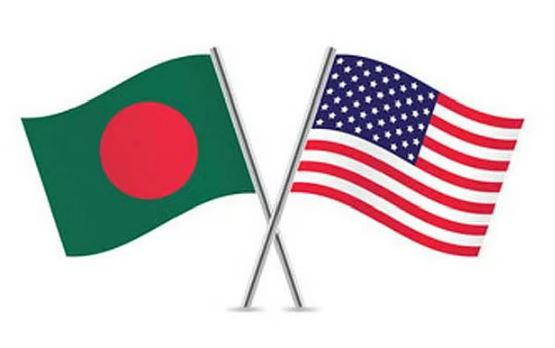Bangladesh is planning to reduce tariff on imports from the United States significantly as part of efforts to boost bilateral trade. Currently, the country imposes an average 6 per cent tariff on US imports, but the government is now considering the possibility of removing this almost entirely, according to sources in the Ministry of Commerce.
The idea is weighed ahead of a third round of trade talks with the US on reciprocal tariff cuts. In preparation, various levels of coordination are underway, and a team of Bangladeshi business leaders may accompany the government delegation to Washington. The talks are expected late next week, with commerce adviser Sheikh Bashir Uddin set to lead the team, reports Prothom Alo.
Commerce secretary Mahbubur Rahman confirmed to Prothom Alo on Thursday that the government is considering bigger tariff concessions on US goods.
In addition to expanding official imports of wheat, liquefied natural gas (LNG), aircraft parts, and edible oil from the US, steps have been taken to increase private-sector imports of US cotton.
He said the date for the third round of negotiations would be announced soon.
According to National Board of Revenue data, Bangladesh imported goods worth USD 2.5 billion from the US in the 2024–25 fiscal year, while exports to the US totalled USD 8.76 billion.
Ministry officials believe that even though Bangladesh may lose some revenue by cutting tariffs on US imports, the country stands to benefit if the US reciprocates with tariff reductions on Bangladeshi exports.
US President Donald Trump had announced retaliatory tariffs on 60 countries, including Bangladesh, on 2 April. In response, Bangladesh sent a letter to the US on 7 April requesting a suspension of the decision. On 9 April, the Trump administration temporarily suspended the decision for three months, keeping a minimum 10 per cent duty in place. However, on 8 July, the administration announced a new 35 per cent reciprocal tariff on Bangladesh, effective 1 August. With Bangladesh’s average current export duty to the US being 15 per cent, the total tariff will now jump to 50 per cent.
Trade experts and exporters say Bangladesh has not adequately prepared for the three-month negotiation window.
According to ministry sources, a separate delegation of business leaders may travel to the US to support the government’s position. They are expected to meet with top officials from major US retail brands importing Bangladeshi apparel and seek their support. The government also hopes to gain their strategic advice for the upcoming negotiations. A former diplomat currently based in the US has also been requested to assist with the talks.
Sources said the US signed a non-disclosure agreement (NDA) with Bangladesh on 12 June, preventing the inclusion of private representatives in the official delegation.
However, several exporters say they have yet to receive an official invitation from the government, and are unsure whether they will participate.
Meetings with US companies
The Commerce Ministry has been holding meetings with US companies and associations to assess the issues surrounding exports from the US to Bangladesh.
On Thursday, Commerce Adviser Sheikh Bashir Uddin held an online meeting with US Wheat Associates, which promotes US wheat exports globally. The government has already decided to import US wheat even at a premium of USD 20–30 per ton. Bangladesh has traditionally sourced wheat from Russia and Ukraine.
On Wednesday, the adviser also met online with Chevron, which has long operated in Bangladesh and recently received payment for all its dues. On the same day, the ministry also held talks with Excelerate Energy, with whom Bangladesh has an existing LNG import agreement.
Two more meetings are scheduled for Friday — one with the US Soybean Export Council (USSEC), which helps expand US soybean oil exports, and another with the US Cotton Association, which promotes US cotton sales globally.
Another key meeting is planned for 22 July with the American Apparel and Footwear Association (AAFA), a key stakeholder in the US retail import sector.













-20260226080139.webp)






-20260225072312.webp)








-20260219054530.webp)
-20260224075258.webp)




-20260221022827.webp)